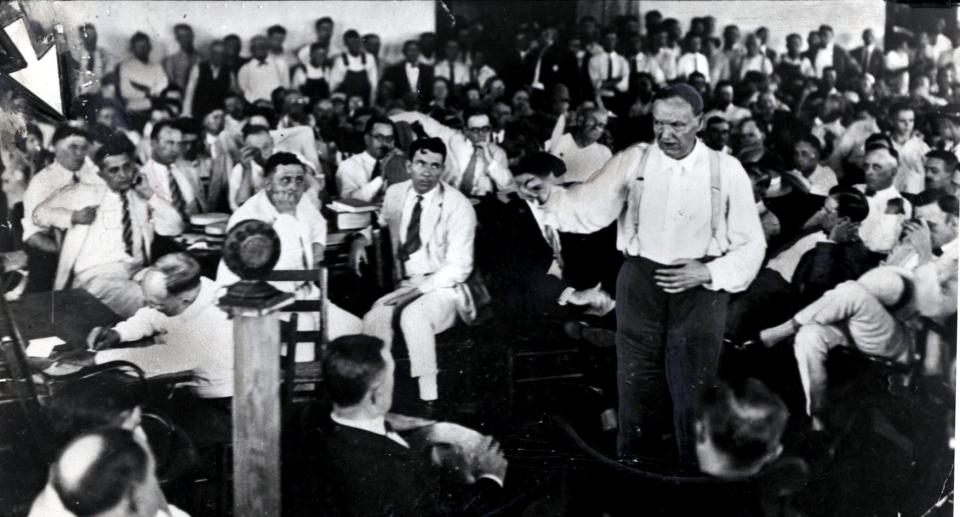Chautauqua Lecture Series: The Scopes Trial in History and Folklore

On October 29, 1911, newspaper magnate Joseph Pulitzer died aboard his yacht in the Charleston, S.C., harbor. His destination had been his winter cottage on Jekyll Island. Several years later, through an endowment in his will, the first Pulitzer Prizes were awarded to recognize excellence in journalism and the arts.
This summer, to celebrate the 100th anniversary of the Prize, the Society will explore connections between our state and the coveted award. In a series of five programs, scholars and authors will focus on winners in different categories and the impact of the Prize. The series will begin and end with lectures about early recipients: playwright Eugene O’Neill, winner of four Prizes for drama, who lived on Sea Island for four years; and Caroline Miller, 1934 winner for fiction, who paved the way for Margaret Mitchell’s Gone with the Wind. The 1998 and 2007 Pulitzer Prize winners in History, both Georgia residents, will discuss the impact of the award on their careers, and Joseph Pulitzer’s biographer will tell the story of the ground-breaking publisher.
On September 1, Edward J. Larson, professor of history and chair in law at Pepperdine University, will present “The Scopes Trial in History and Folklore.” While at the University of Georgia, Dr. Larson won the 1998 Pulitzer Prize in History for his book, Summer for the Gods: The Scopes Trial and America’s Continuing Debate over Science and Religion. He holds a law degree from Harvard University and a doctorate in the history of science from the University of Wisconsin-Madison. Author of nine books, his topics have ranged from evolution and Antarctic science to America’s founding fathers.
The 2016 Lecture Series is sponsored by Wells Fargo Advisors.
